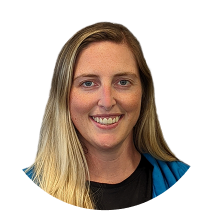Original Article
Published by Aditi Pai at Mobi Health News - May 12, 2014
At AARP's Life@50+ event in Boston last week, 10 startups presented products targeted at AARP's 38 million members. The products ranged from a mobile diagnostic testing tool to a system that helps caregivers clock their hours and connect with others in the area.
In December 2013, a report sponsored by Startup Health and AARP found that digital health startups that are targeting the aging population, 50 and over, more than doubled their funding in the past three years, increasing their funding from $413 million in 2010 to $928 million in 2013.
At the AARP Life@50+ event, Venture Valkyrie Managing Partner Lisa Suennen, who introduced the demos, added that she found it "gratifying to see entrepreneurs shedding their hoodies and bellying up to the bar", to develop digital health offering for older consumers, especially since there is such "a premium on youth and inexperience in Silicon Valley".
Here's MobiHealthNews compilation about the 10 startups who presented at the event:
Accel Diagnostics
The first company to present, called Accel Diagnostics, developed a test to screen for health issues that could reduce hospital readmissions for people with preexisting conditions. To test for health problems, users are asked to put their blood or urine on the credit card-sized test strip and then scan the strip using an app and their smartphone's camera. While lab tests usually require users to go to a healthcare facility and then wait two to three days, Accel's device sends results to the physicians immediately.
Accel Diagnostics wants to roll the service out to hospitals first so that patients who have been hospitalized can be monitored by their doctor for 30 days after using this technology. Patients will eventually be able to buy it directly from the company. Accel Diagnostics is planning a clinical trial with a San Francisco-area hospital.
BiiSafe
The next company, BiiSafe, developed a small circular device that users can click at any time so that a notification about their location is sent to the user's friends and family. The device works on iOS and Android platforms and the battery lasts several months. Users can also use the device to pinpoint locations for themselves. It costs $69 and BiiSafe offers users free access for the first year. After that,the service costs $3 per month. Currently, a hospital in Finland is testing the device as an emergency button in its facilities for when patients go missing. While smartphones offer similar apps, Biisafe CEO Jouni Suutarinen said that sometimes it’s not as easy to access a smarpthone if the user needs something quickly. Eventually BiiSafe wants to add step counting and other features for health-related monitoring.
Careticker
The founders of Careticker believe that while startups are incentivizing doctors to implement an EHR and incentivizing patients to monitor their health, there aren't many startups incentivizing family caregivers log their activity. Careticker CEO Chiara Bell said that 65 million consumers are family caregivers who dispense medications, give baths, and provide care in other ways. The Careticker mobile and web app offers this group of people a place to log caregiving hours for points. These points can be used to earn a salary sponsored by a health plan or redeem rewards. The app also offers a social network for experienced caregivers to share tips and advice and for newer caregivers to learn and connect with others in the network. Companies in Florida and Tennessee are currently beta testing the product. Bell aims to distribute Careticker through health plans and then later directly to consumers.
Healthspek
Healthspek also works with patient data, but this company's goal is to bring all of a user's data, from the primary care doctor, the hospital, and "the kitchen drawer" into one place so that a user visiting a specialist or a health facility while on vacation will be able to access it. The app offers users a dashboard from which patients can add information that they find valuable, such as medication reminders, mammogram reminder, wearable activity information, and price transparency tools. Some aspects of the app will be sponsored so that the app can be free for patients. On the other side, providers have access to the increased information that the user collects, which they can then import into the patient's existing EMR.



